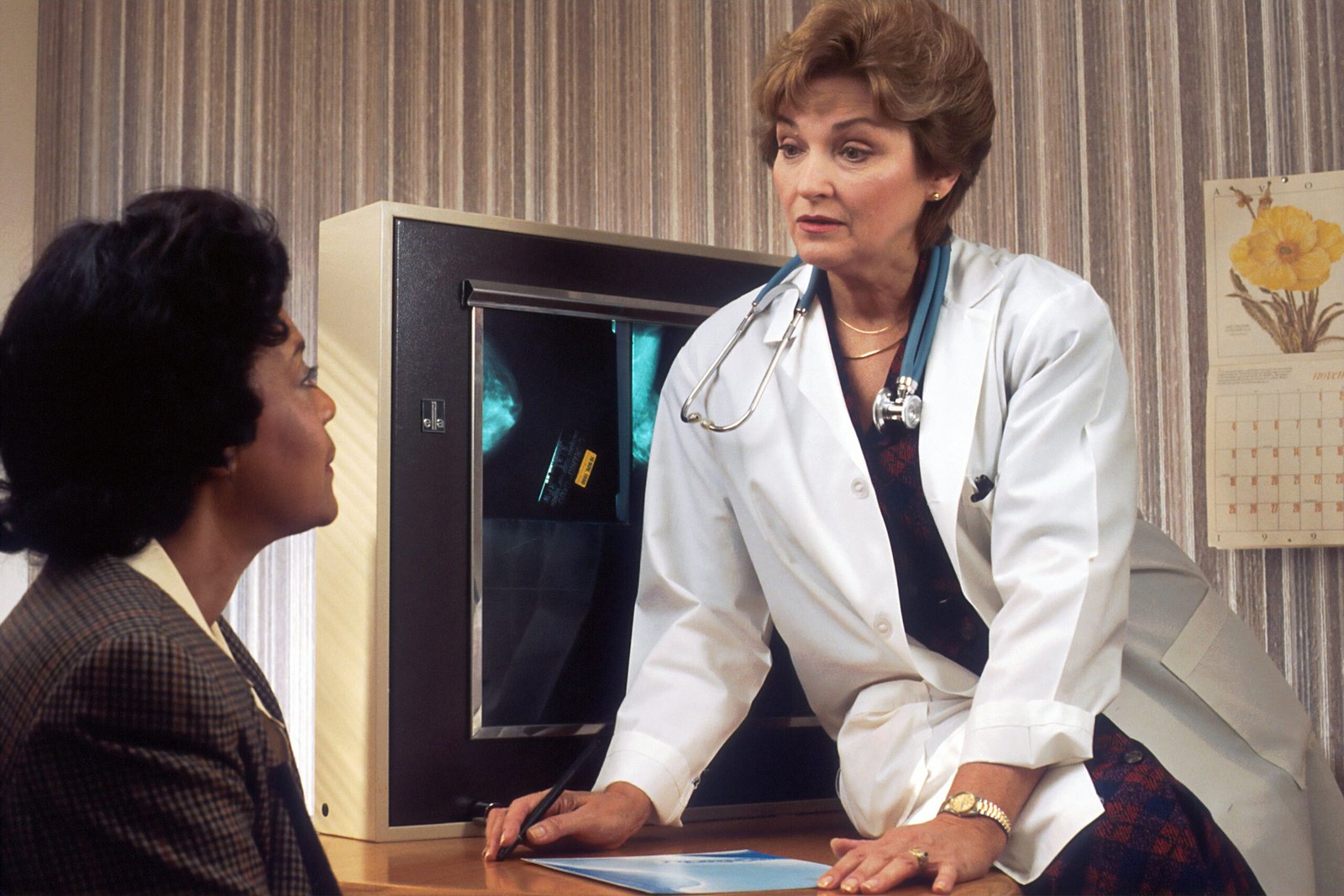
Introduction
As we age, our bodies go through various changes, and the risk of developing chronic conditions increases. Managing chronic conditions in the elderly requires a proactive approach to ensure a good quality of life. In this blog post, we will provide you with valuable tips for disease management in the elderly, helping them live a healthier and more fulfilling life.
One of the most important aspects of disease management in the elderly is regular medical check-ups. As we age, our bodies become more susceptible to various illnesses and diseases. Regular check-ups allow healthcare professionals to monitor the health of the elderly and detect any potential issues early on. These check-ups often include blood tests, screenings, and physical examinations to assess overall health and identify any underlying conditions.
In addition to regular check-ups, medication management is crucial for the elderly. Many older adults take multiple medications to manage various chronic conditions. However, it can be challenging for them to keep track of all the medications and their dosages. This is where a medication management system can be helpful. It can be as simple as using a pill organizer or as advanced as using a smartphone app that sends reminders for medication intake. By ensuring that medications are taken as prescribed, the risk of complications and adverse drug interactions can be minimized.
Another important aspect of disease management in the elderly is maintaining a healthy lifestyle. This includes a balanced diet, regular exercise, and adequate sleep. A diet rich in fruits, vegetables, whole grains, and lean proteins can help prevent or manage chronic conditions such as diabetes, heart disease, and hypertension. Regular exercise, even in the form of low-impact activities like walking or swimming, can improve cardiovascular health, strengthen muscles, and enhance overall well-being. Adequate sleep is essential for the body to heal and recharge, and it plays a vital role in maintaining a healthy immune system.
In addition to medical and lifestyle interventions, emotional support is also crucial for disease management in the elderly. Living with chronic conditions can be emotionally challenging, and feelings of loneliness, anxiety, and depression are common. Having a strong support system, whether it be family, friends, or support groups, can help alleviate these emotional burdens. Engaging in activities that bring joy and purpose, such as hobbies, volunteering, or spending time with loved ones, can also contribute to emotional well-being.
In conclusion, disease management in the elderly requires a comprehensive approach that encompasses regular medical check-ups, medication management, a healthy lifestyle, and emotional support. By implementing these strategies, older adults can effectively manage their chronic conditions and enjoy a higher quality of life. It is important to remember that each individual is unique, and disease management plans should be tailored to their specific needs and preferences.
Additionally, it is important to stay up to date with the latest research and advancements in the field of geriatric medicine. Subscribe to reputable medical journals and websites that specialize in elderly care. This will allow you to access the most current information and stay informed about new treatment options or breakthroughs that may benefit your loved one.
Furthermore, consider attending conferences or seminars on geriatric health. These events often feature expert speakers who can provide valuable insights and advice on managing chronic conditions in the elderly. Networking with other caregivers and healthcare professionals at these events can also be beneficial, as you can learn from their experiences and share your own challenges and successes.
Remember, knowledge is not only power for you as a caregiver, but it can also empower your loved one. By sharing information with them, you can help them better understand their condition and actively participate in their own care. This can improve their overall well-being and sense of control over their health.
Moreover, educating yourself and your loved one about the specific condition they are dealing with can help you anticipate and address potential complications. By being aware of the warning signs and knowing how to respond, you can prevent or minimize the impact of these complications. This proactive approach can significantly improve the quality of life for your loved one and reduce the need for emergency medical interventions.
In conclusion, staying informed and educated about your loved one’s chronic condition is crucial for effective caregiving. By acquiring knowledge, attending educational workshops, staying updated with research, and participating in conferences, you can become a well-informed caregiver who can make informed decisions and provide the best possible care for your loved one.
2. Build a Strong Support System
Managing chronic conditions can be overwhelming, both for the elderly individual and their caregivers. Building a strong support system is crucial for disease management.
Ensure that your loved one has a reliable healthcare team consisting of doctors, nurses, and specialists who can provide comprehensive care. Regular check-ups and open communication with healthcare professionals are essential for monitoring the condition and making necessary adjustments to the treatment plan. This team of healthcare professionals should work together to create a personalized care plan that addresses the specific needs and challenges of your loved one’s condition.
Furthermore, it is important to involve family members in the care process. Family members can provide valuable information about the patient’s medical history, symptoms, and daily routines, which can assist healthcare professionals in making informed decisions regarding the treatment plan. Family members can also offer emotional support and encouragement to the patient, helping them navigate the challenges of living with a chronic condition.
In addition to healthcare professionals and family members, it is beneficial to seek support from friends and community resources. Friends can provide a listening ear and offer companionship, while community resources such as support groups and organizations can provide valuable information, resources, and guidance. These support systems can help alleviate feelings of isolation and provide a sense of belonging and understanding.
When building a support system, it is important to consider the specific needs and preferences of your loved one. Some individuals may prefer one-on-one interactions, while others may thrive in group settings. By understanding their preferences, you can help create a support system that best meets their needs and promotes their overall well-being.
Remember, managing a chronic condition is a team effort. By building a strong support system consisting of healthcare professionals, family members, friends, and community resources, you can ensure that your loved one receives the necessary care, support, and encouragement to effectively manage their condition and maintain a good quality of life.
Manage Stress: Chronic stress can have a negative impact on overall health and well-being. Encourage your loved one to practice stress management techniques such as deep breathing exercises, meditation, or engaging in hobbies they enjoy. Additionally, encourage them to seek support from friends, family, or a therapist if needed.
Stay Hydrated: Proper hydration is essential for maintaining optimal health. Encourage your loved one to drink an adequate amount of water throughout the day and limit the consumption of sugary beverages. Keeping a water bottle handy can serve as a reminder to stay hydrated.
Maintain a Social Life: Loneliness and isolation can negatively impact mental and physical health. Encourage your loved one to engage in social activities, such as joining clubs, attending community events, or participating in group activities. Regular social interaction can provide a sense of belonging and support.
Practice Good Hygiene: Maintaining good hygiene is crucial for preventing infections and promoting overall health. Encourage your loved one to follow proper handwashing techniques, take regular showers or baths, and maintain oral hygiene by brushing and flossing regularly.
Stay Up to Date with Medical Check-ups: Regular medical check-ups are essential for managing chronic conditions and detecting any potential health issues early on. Encourage your loved one to schedule and attend appointments with their healthcare provider, and assist them in keeping track of medications and any necessary follow-up tests or screenings.
Engage in Cognitive Stimulation: Keeping the mind active is important for maintaining cognitive function and preventing cognitive decline. Encourage your loved one to engage in activities that challenge the brain, such as puzzles, reading, learning a new skill, or playing memory games.
Follow Medication and Treatment Plans: It is crucial for your loved one to adhere to their prescribed medication and treatment plans. Help them organize their medications, set reminders if necessary, and ensure they understand the importance of following the prescribed regimen.
Monitor and Manage Chronic Conditions: Regularly monitor and manage your loved one’s chronic conditions by keeping track of symptoms, monitoring vital signs, and following any recommended self-care measures. Work closely with their healthcare provider to ensure their conditions are well-managed and any necessary adjustments to their treatment plan are made.
Encourage Mental and Emotional Well-being: Support your loved one’s mental and emotional well-being by listening to their concerns, offering emotional support, and encouraging them to engage in activities that bring them joy and fulfillment. Consider exploring options such as therapy or support groups if needed.
By implementing these habits, your loved one can maintain a healthy lifestyle and effectively manage their chronic conditions, leading to improved overall well-being and quality of life.
Consider the Use of Medication Management Services: In some cases, it may be beneficial to enlist the help of medication management services. These services can provide assistance with organizing medications, ensuring proper dosages are taken, and even delivering medications directly to the individual’s home. This can be particularly helpful for those who have difficulty managing their medications independently or who may be at risk of medication errors.
Communicate with Healthcare Professionals: It is essential to maintain open lines of communication with healthcare professionals involved in your loved one’s care. Regularly update them on any changes in medications, including new prescriptions, dosage adjustments, or discontinuation of medications. This will help ensure that everyone is on the same page and can make informed decisions regarding medication management.
Consider Adherence Aids: If your loved one struggles with remembering to take medications or has difficulty with the physical act of taking them, consider using adherence aids. These can include pill organizers with alarms or even devices that dispense medications at predetermined times. These aids can help promote medication adherence and reduce the risk of missed or double doses.
Stay Informed: Keep up-to-date with the latest advancements and research in medication management for chronic conditions. This includes staying informed about new medications, alternative treatment options, and any changes in guidelines or recommendations. Being knowledgeable about your loved one’s medications will empower you to make informed decisions and advocate for their best interests.
Encourage Open Dialogue: Foster an environment of open dialogue with your loved one regarding their medications. Encourage them to ask questions, voice concerns, and share any difficulties they may be experiencing. This will help ensure that they feel supported and empowered in managing their medications effectively.
Seek Professional Guidance: If you are unsure about any aspect of medication management, do not hesitate to seek professional guidance. Healthcare professionals, such as pharmacists or geriatric specialists, can provide valuable insights and advice tailored to your loved one’s specific needs. They can help address any concerns or challenges you may be facing and offer solutions to optimize medication management.
By following these tips and implementing effective medication management strategies, you can help ensure that your loved one’s chronic conditions are properly managed, reducing the risk of complications and improving their overall quality of life.
Stay Up-to-Date with Medications: It is important to regularly review and update the medication list for your loved one. Keep track of any new medications prescribed, changes in dosage, and any potential side effects that may arise. This information should be shared with healthcare professionals during check-ups to ensure that the medication regimen is still appropriate and effective.
Monitor Lifestyle and Daily Activities: In addition to medical monitoring, it is crucial to keep an eye on your loved one’s lifestyle and daily activities. This includes observing their eating habits, physical activity levels, and any changes in sleep patterns. These factors can have a significant impact on their overall health and well-being, and any deviations from their usual routines should be discussed with healthcare professionals.
Engage in Open Communication: Regular check-ups provide an opportunity for open communication between your loved one, their healthcare providers, and yourself. Encourage your loved one to ask questions, express concerns, and share any difficulties they may be experiencing. This open dialogue ensures that everyone is on the same page and allows healthcare professionals to provide the best possible care.
Take Advantage of Telemedicine: In today’s digital age, telemedicine has become an increasingly popular option for healthcare. This allows your loved one to have virtual appointments with healthcare professionals from the comfort of their own home. Telemedicine can be especially beneficial for elderly individuals who may have difficulty traveling or accessing healthcare facilities. Discuss with your loved one’s healthcare provider if telemedicine is a suitable option for their condition.
Stay Informed about Community Resources: Lastly, it is important to stay informed about community resources that can support your loved one’s health and well-being. This may include local support groups, senior centers, or programs that offer assistance with transportation or meal delivery. These resources can provide additional support and enhance the overall management of your loved one’s chronic condition.
Provide Social Connections: In addition to emotional support, maintaining social connections is crucial for the mental well-being of the elderly. Encourage your loved one to stay connected with friends, family, and community groups. Loneliness and isolation can have a negative impact on mental health, so it’s important to foster a sense of belonging and social interaction.
Address Anxiety and Depression: Chronic conditions can often lead to feelings of anxiety and depression. If you notice signs of these mental health issues in your loved one, such as persistent sadness, loss of interest in activities, or changes in appetite and sleep patterns, it’s important to address them promptly. Consult with their healthcare provider to explore treatment options, which may include therapy, medication, or a combination of both.
Encourage Self-Care: Taking care of oneself is essential for overall well-being. Encourage your loved one to prioritize self-care activities, such as getting enough rest, eating a balanced diet, and engaging in regular physical exercise. These activities can help improve mood, reduce stress, and enhance overall mental well-being.
Provide Information and Education: Knowledge is power, especially when it comes to managing chronic conditions. Help your loved one understand their condition by providing them with accurate and up-to-date information. This can empower them to take an active role in their own care and make informed decisions about their health.
Monitor for Signs of Cognitive Decline: Some chronic conditions, such as Alzheimer’s disease or Parkinson’s disease, can also impact cognitive function. Keep an eye out for any changes in memory, thinking, or behavior, and consult with their healthcare provider if you have concerns. Early detection and intervention can make a significant difference in managing cognitive decline.
Seek Support from Support Groups: Connecting with others who are going through similar experiences can provide a sense of understanding and validation. Look for support groups or online communities where your loved one can share their challenges, learn from others, and receive support from individuals who truly understand what they are going through.
Monitor Medication Side Effects: Some medications used to manage chronic conditions can have side effects that impact mental well-being. Keep track of any changes in mood, behavior, or cognition that could be related to medication. If you notice any concerning side effects, discuss them with the healthcare provider to explore alternative options or adjustments to the treatment plan.
Encourage Positive Thinking: Help your loved one cultivate a positive mindset by focusing on the things they can control and finding gratitude in their daily lives. Encourage them to practice positive affirmations and engage in activities that bring them joy and fulfillment.
By prioritizing emotional support and mental well-being, you can help your loved one navigate the challenges of managing a chronic condition with resilience and positivity. Remember to also take care of yourself as a caregiver, as your well-being is equally important in providing the best support possible.

